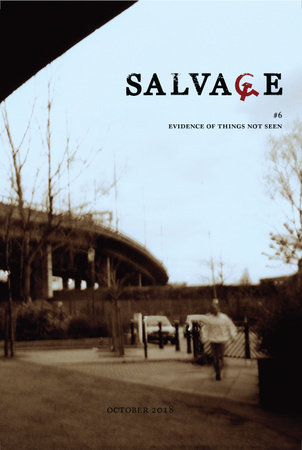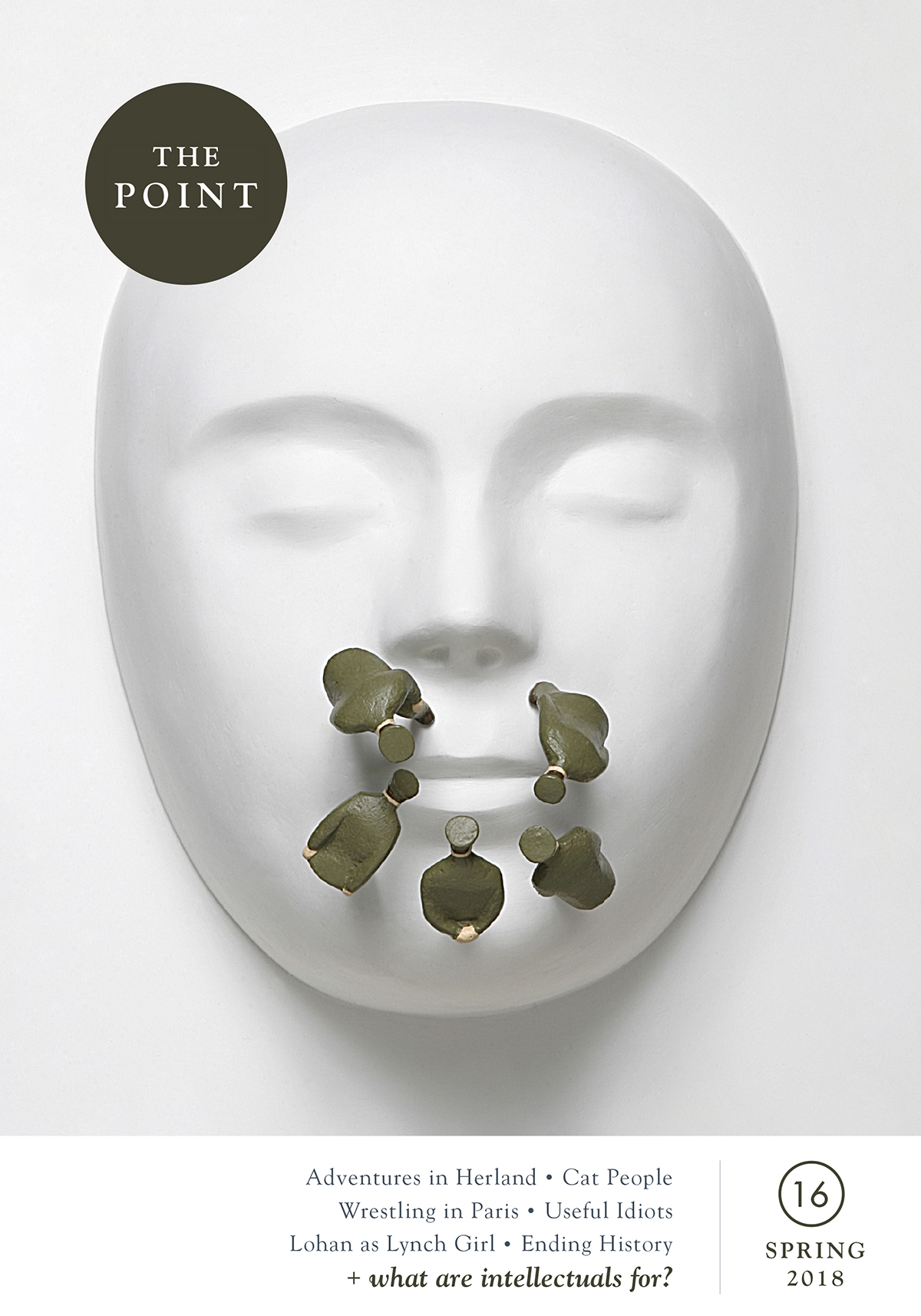topic/literary-theory
Terry Eagleton,
Jean-Paul Sartre,
James Wood,
Zadie Smith,
Annie Dillard,
George Saunders,
Ben Lerner,
Richard Seymour,
Jon Baskin
Such optimism was at the opposite extreme of the writer's conception of his art; the artist needs an unassimilable matter because beauty is not resolved into ideas. Even if he is a prose-writer and assembles signs, his style will have neither grace nor force if it is not sensitive to the material character of the word and its irrational resistances. And if he wishes to build the universe in his work and to support it by an inexhaustible freedom, the reason is that he radically distinguishes things from thought. His freedom and the thing are homogeneous only in that both are unfathomable, and if he wishes to readapt the desert or the virgin forest to the Mind, he does so not by transforming them into ideas of desert and forest, but by having Being sparkle as Being, with its opacity and its coefficient of adversity, by the indefinite spontaneity of Existence. That is why the work of art is not reducible to an idea; first, because it is a production or reproduction of a being, that is of something which never quite allows itself to be thought; then, because this being is totally penetrated by an existence, that is, by a freedom which decides on the very fate and value of thought. That is also why the artist always had a special understanding of Evil, which is not temporary and remediable isolation of an idea, but the irreducibility of man and the world of Thought.
his writing makes no sense but damn is it pretty
[...] We hope that our books remain in the air all by themselves and that their words, instead of pointing backwards towards the one who has designed them, will be toboggans, forgotten, unnoticed, and solitary, which will hurl the reader into the midst of a universe where there are no witnesses; in short, that our books may exist in the manner of things, of plants, of events, and not at first like products of man. We want to drive providence from our works as we have driven it from our world. [...]
[...] The writer, in opposition to bourgeois ideology, chose to speak to us of things at the privileged moment when all the concrete relations which united him with the objects were broken, save the slender thread of his gaze, and when they gently undid themselves to his eyes, untied sheaves of exquisite sensations.
[...] Watching is a real extension of the logic of industrial labor, even if it is not the same as industrial labor. However, as metaphor, it illuminates the obscure workings of the economy in general. As Ricoeur writes, "metaphor is the rhetorical process by which discourse unleashes the power that certain fictions have to redescribe reality" (1977, 7).
totally irrelevant to the topic but kinda pretty
Salvage #6: Evidence of Things Not Seen
by
multiple authors
Salvage #6: Evidence of Things Not Seen
by
multiple authors
Salvage #6: Evidence of Things Not Seen
by
multiple authors
Poetry arises from the desire to get beyond the finite and the historical - the human world of violence and difference - and to reach the transcendent or divine. You're moved to write a poem, you feel called upon to sing, because of that transcendent impulse. But as soon as you move from that impulse to the actual poem, the song of the infinite is compromised by the finitude of its terms. In a dream your verses can defeat time, your words can shake off the history of their usage, you can represent what can't be represented [....] but when you wake [...] you're back in the human world with its inflexible laws and logic. Thus the poet is a tragic figure. The poem is always a record of failure.
from The Hatred of Poetry
[...] If we could separate meaning from sound, he adds, 'we'd read plot summaries rather than novels.' Or, in the domain of politics, listicles rather than the Communist Manifesto. But the fact that the common sense is what it is, indicates how much of the history of writing has been repressed: the idea of peering through a series of coloured knots onto reality would seem to be a profound misunderstanding of what the knots were for. Knots might illuminate, but they can't get out of the way of their own meaning. Yet we think we can use language as though it could be, and should aspire to be, as transparent as a windowpane. We expect language to get out of the way. We demand clarity.
The demand for clarity in its modern sense is ideologically suspect, rooted in an idealistic metaphysic of meaning, but it is seductive because it appears to be inclusive and democratic in its approach to communication. Its apparent obverse, say, 'obscurity', is regarded as an elitist practice, akin to obfuscation. [...]
Writing, whatever else it is doing, is always getting at something that it never quite obtains. There is always something unsaid, something that clings to writing like a shadow.
The Point 16: What are intellectuals for?
by
multiple authors
The Point 16: What are intellectuals for?
by
multiple authors
The Point 16: What are intellectuals for?
by
multiple authors
The end of history, Fukuyama wrote, was not the end of historical events, but the end of ideological conflict. But once the end of history has been revoked, a renewal of the possibilities of ideology to enhance narrative should not be far behind. Reality under the Trump administration truly is hysterical, and any meaningful literary response to it should probably take into account how we—that nebula of left-leaning literary types to which Batuman and I and everyone who reviewed or cares about reviews of The Idiot belong—put up with so many patently mediocre fictions for so long. This isn’t to suggest that novelists should dive headfirst into professions of socialist faith. Certain authors have already shown the limits of such an approach. It is not a question of advocating one belief or another, but of examining their implications through the vessel of dramatic narrative. It’s not to discount the existence of types of novels other than the ideological, nor to overlook the gifted fiction writers who already know how to fuel their narratives with zealous idiocy, self-centered or otherwise. Junot Díaz, Tao Lin, Adelle Waldman, Alexandra Kleeman and Paul Beatty have all demonstrated how foolish true believers can push novels forward onto territory that blatant author surrogates, burdened by intelligent inaction, could never reach.
These are unsettling times. Tensions and pressures formerly pacified by the prospect of endless growth now draw force from a state of permanent stagnation. Established institutions tremble with the resentful energies of dishonored promises; each crisis barely averted sows the seeds for more inevitable confrontation. Yet if literary history is any indication, an era of collapsing order offers fertile ground for novelists. Shaken by events out of inertia and conformity, they waken to a world teeming with open inquiries and untested solutions; whether facing the window, the mirror or the other, certainties dissolve. The pressing question is no longer how to fit in with the given, but how much must be changed. The temptation to wager one’s existence on an unrealized social ideal grows ever more alluring. So, too, grows the inclination to review one’s ideals and imagine their implications writ large. The unique quality of the novel catalyzed by ideology is its range, its capacity to simultaneously circumscribe the horizons of belief, exercise the full freedom to maneuver in society, and gauge its potential to foster individual maturity. It’s the best, if not the only, instrument left to us to understand what we are becoming.
wow. think about this
The dichotomy drawn here is false-and not false. I mean in reality there's no split. It's the same person who feels and who discourses about epistemology. The problem is that you can't talk about your private life in the course of doing your professional work. You have to pretend that epistemology, or whatever you're writing about, has nothing to do with your life, that it's more exalted, more important, because it (supposedly) transcends the merely personal. Well, I'm tired of the conventions that keep discussions of epistemology, or James Joyce, segregated from meditations on what is happening outside my window or inside my heart. The public-private dichotomy, which is to say the public-private hierarchy, is a founding condition of female oppression. I say to hell with it. The reason I feel embarrassed at my own attempts to speak personally in a professional context is that I have been conditioned to feel that way. That's all there is to it.
I think people are scared to talk about themselves, that they haven't got the guts to do it. I think readers want to know about each other. Sometimes, when a writer introduces some personal bit of story into an essay, I can hardly contain my pleasure. I love writers who write about their own experience. I feel I'm being nourished by them, that I'm being allowed to enter into a personal relationship with them, that I can match my own experience with theirs, feel cousin to them, and say, yes, that's how it is.
Each character was a betrayer, a thief stealing some part of my own life (adoption, abandonment by parents, therapy, therapist who had something to hide from me), pieces of those interior stories that will not go away. I did not know if bringing them to the fore would purge them from my mind or more firmly install them. In any case, the characters seemed inevitable.
on her novel





